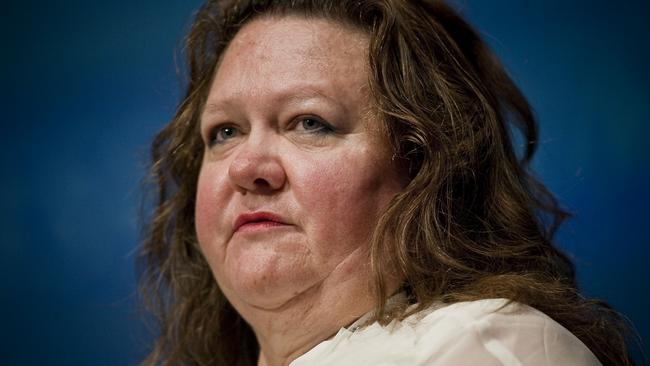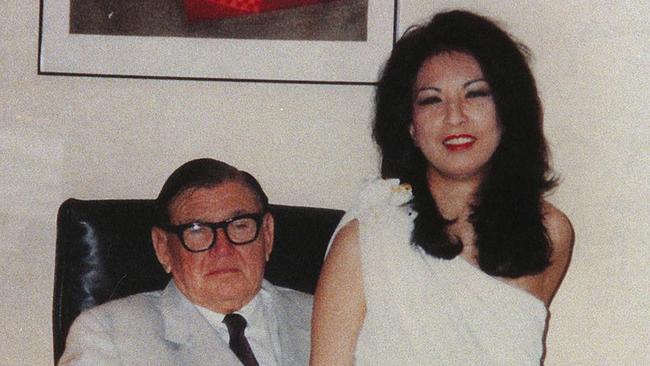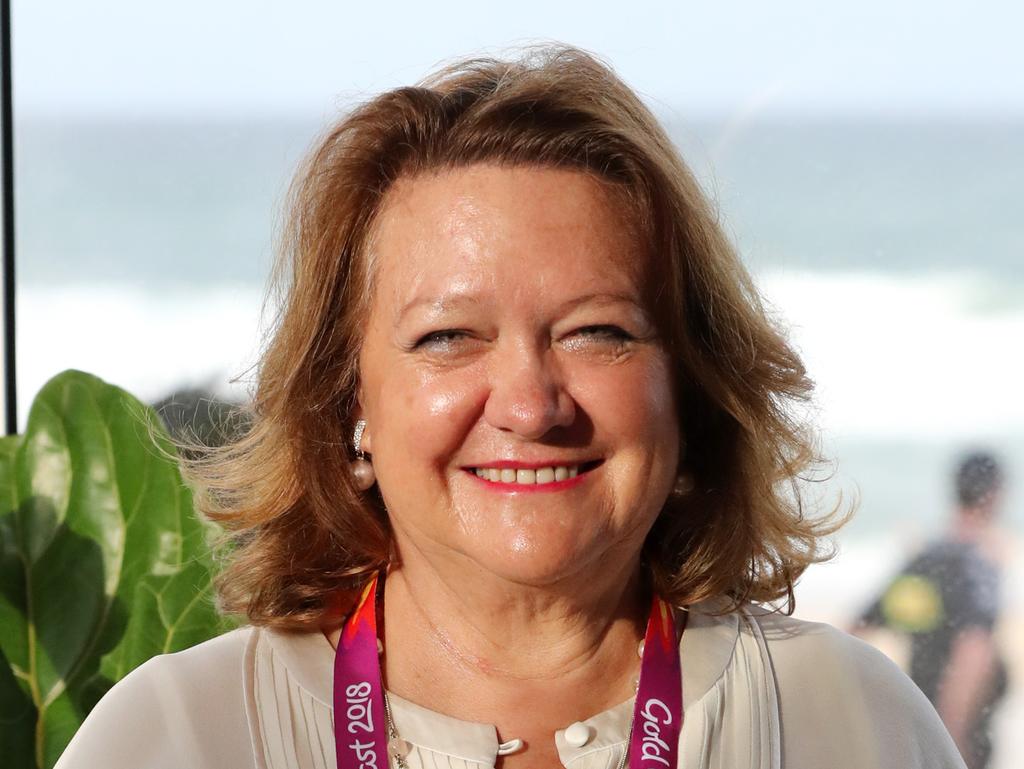Hancock threatened to force Rinehart to sell shares after she questioned spending on Porteous
Hancock Prospecting was ‘haemorrhaging money’ in the final years of Lang Hancock’s life as he spent millions on mansions, luxury cars, jewellery and a private jet for his new wife, a court hears.

Lang Hancock threatened to force his daughter Gina Rinehart to sell her stake in the family’s iron ore empire as their relationship broke down during his marriage to Rose Porteous, a court has heard.
Noel Hutley SC, who is representing Mrs Rinehart and Hancock Prospecting in their defence of a multibillion-dollar civil claim from the descendants of her father’s former business partner Peter Wright, on Friday went into extraordinary detail of the difficult relationship between Lang Hancock and Mrs Rinehart late in the iron ore pioneer’s life.
He also walked through the complex accounting measures taken by Lang Hancock in order to both reduce his tax obligations and take control of assets for the benefit of him and Ms Porteous.
Mr Hutley produced several pieces of correspondence between Lang Hancock and Mrs Rinehart in which the pair quarrelled over Ms Porteous and his handling of the family empire.
In one letter, Lang Hancock made Mrs Rinehart an offer of $5m for her one-third share in Hancock Prospecting, or HPPL, and warned her that he had the ability to force her to sell.

“I must remind you that under the articles of HPPL, the company can require you to sell your shares at any time at valuation by the company’s auditor. I would hope you would not force me and the company into this course,” he wrote.
The threat was never followed through, and the Hancock interests have since gone on to make Mrs Rinehart Australia’s richest woman with an estimated net worth of more than $37bn.
Lang Hancock did, however, terminate Mrs Rinehart as a director of both Hancock Prospecting and the Hancock Family Memorial Foundation.
The “thinly veiled threat” from Lang Hancock followed letters from Mrs Rinehart in which she questioned his conduct, including his spending on Rose Porteous, a Filipino former housemaid he married in 1985.
“As governing director, what are you going to do to safeguard our company from any further spending on her? What are you going to do to protect the affairs of our company from her?” Mrs Rinehart wrote to her father, according to Mr Hutley.
In the years leading up to Lang Hancock’s death, Mr Hutley said, the Hancock empire was “haemorrhaging money”.

Deals that Lang Hancock had entered with Romanian parties “proved to be disastrous”, and his spending on Ms Porteous exacerbated the difficult finances.
“By this time, Lang Hancock had taken tens of millions of dollars out of HPPL, most of which went to Rose to pay for things like mansions, luxury cars, jewellery and a private jet,” Mr Hutley said.
Further correspondence showed Lang Hancock telling Mrs Rinehart she had nothing to fear from Rose and that his new wife would not be included in his will. The following day, Mr Hutley said, Lang wrote a new will leaving 16 per cent of his HPPL shares to Ms Porteous.
Wright Prospecting is seeking hundreds of millions of unpaid royalties from HPPL’s Hope Downs iron ore joint venture with Rio Tinto as well as a stake in the valuable East Angelas iron ore deposits. The case is also examining a claim from two of Mrs Rinehart’s children, John Hancock and Bianca Rinehart.







